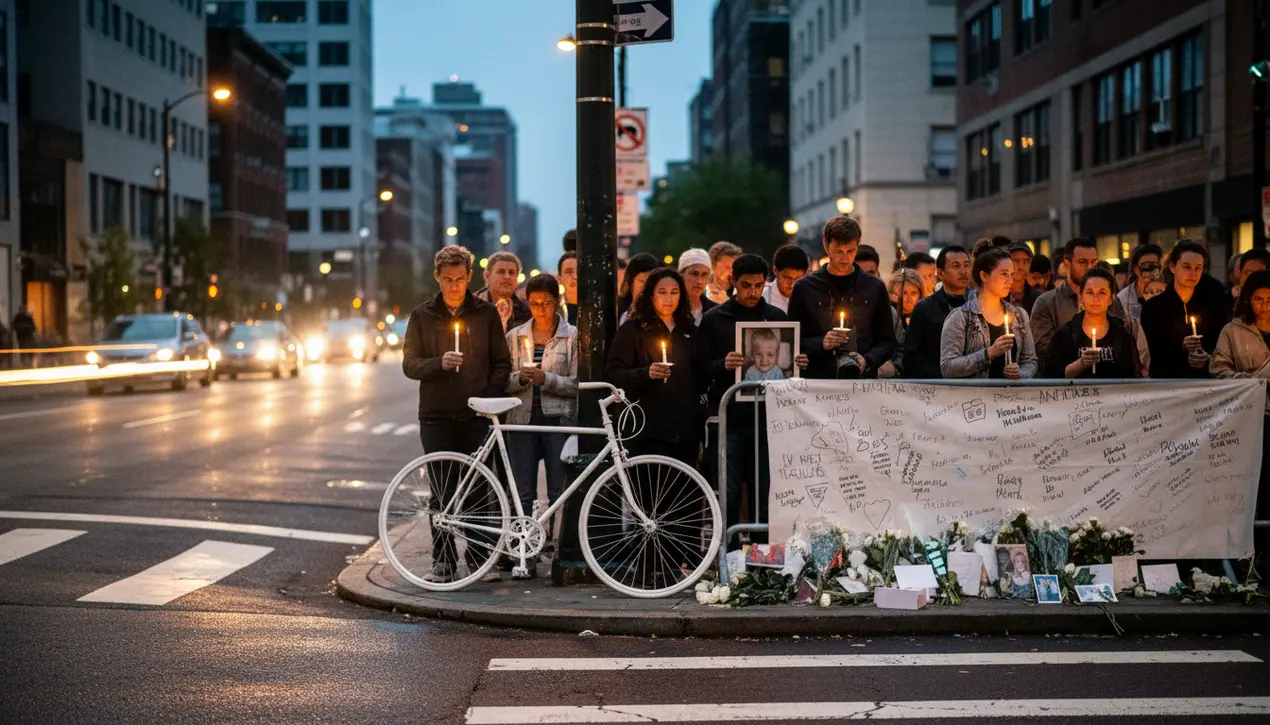
Otherauto & mobilityRegulations and Safety
The Missing Ingredient for Safer Roads: Harnessing the Power of Storytelling
LA
Laura Bennett
1 day ago7 min read4 comments
This past week marked the World Day of Remembrance for Road Traffic Victims, a global moment of reflection for the lives lost and a call to action to prevent future deaths. With over 25 years in the transportation sector, I have seen firsthand the systemic flaws and the profound human cost behind the cold numbers.You may have encountered 'Vision Zero' in policy debates—it is far more than a buzzword. It is a strategic commitment to eradicate all fatal and serious traffic injuries, built on the foundational principle that road deaths are not inevitable accidents but preventable failures.The prevailing narrative often treats these tragedies as unavoidable, a tragic but accepted part of modern life. This is a fallacy.We have the engineering, the policies, and the knowledge to stop them. Every day, a hundred more families are shattered, and thousands more confront the long-term consequences of injury and trauma.Vision Zero addresses this with a deeply humane framework, built on two pillars: first, human error is inevitable, so our roads and vehicles must be designed to be forgiving; and second, safety is a shared responsibility that spans urban planning, public health, and enforcement. In Richmond, Virginia, for example, a significant portion of the population faces co-occurring substance abuse and mental health challenges—some of whom drive.This is not to assign blame, but to highlight the complex human realities that must be part of the safety conversation. So why, with all our technical knowledge, does progress feel so slow? The answer is not a lack of data, but a lack of heart.Historians and behavioral scientists agree: humans are moved to act by emotion, not by statistics alone. We pride ourselves on rationality, but it is emotional resonance that truly drives cultural transformation.Consider a powerful cultural shift from recent history. Over a decade, approximately 13 Americans died from peanut allergies.In that same period, over 400,000 people were killed in traffic crashes. The disparity is staggering.Yet, it was the emotional response to the rare peanut allergy death that mobilized a nation. Schools, sports leagues, and airlines fundamentally changed their policies, effectively enacting a 'Peanut Vision Zero' in a remarkably short time.This is not to diminish the real threat of allergies, but to demonstrate our society's incredible capacity for rapid change when emotionally engaged. The lesson for road safety is undeniable.We possess the diagnostic data, the technical solutions, and a proven blueprint for cultural change. The critical missing element is the emotional catalyst—the personal story.No matter your profession, you are a human being who interacts with others. Your role is to build that bridge of empathy.Perhaps it means showing a video at a community meeting where a grieving parent speaks about a child lost in a preventable crash. It could mean inviting a crash survivor to share their story of recovery at a city council hearing, putting a human face on the abstract numbers.No severe crash is acceptable. If you truly believe that, you will not only drive more mindfully but become the persistent advocate for safer behavior within your own network.We have seen culture change happen, both in small communities and on a grand scale. By sharing these powerful human stories, we can collectively build the momentum needed to reduce severe crashes all the way to zero.
#featured
#Vision Zero
#road safety
#traffic victims
#storytelling
#safety culture
#transportation
#public health
Stay Informed. Act Smarter.
Get weekly highlights, major headlines, and expert insights — then put your knowledge to work in our live prediction markets.
Comments
Loading comments...
© 2025 Outpoll Service LTD. All rights reserved.